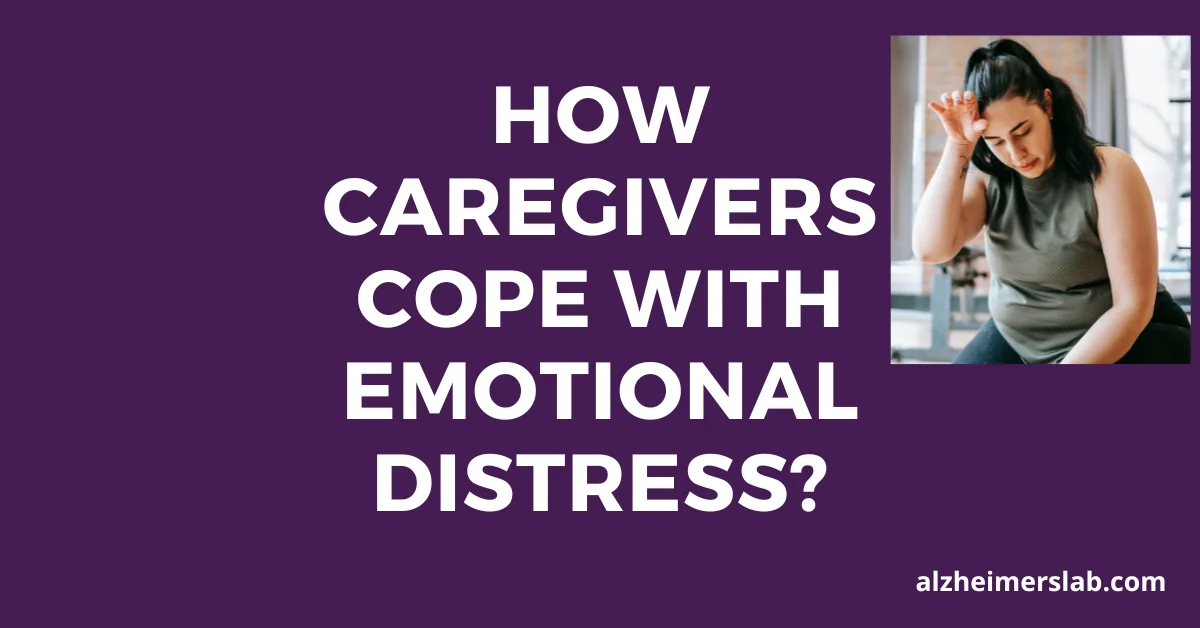How Caregivers Cope With Emotional Distress?
It is not a secret that caregivers experience a tremendous amount of emotional stress. To deal with the mental strain, caregivers— albeit subconsciously— develop coping strategies that may or may not be effective. This post is intended to shed some light on how caregivers cope with emotional distress.
Does Caregiving Cause Emotional Distress?
Yes, caregiving can lead to emotional distress. Caregiving is associated with emotional distress when measured by anxiety, brain functioning, stress, and depression. [1]
Studies show that stress is prevalent in informal caregivers caring for their senior or disabled family members. Common genes and a shared environment between the caregiver and patient can increase the level of stress.
Furthermore, factors such as gender, age, and health also account for emotional distress. The demands of caregiving (workload) can also contribute to stress.
How Do Most Caregivers Cope With Emotional Distress?
Caregivers cope with emotional distress by developing several coping strategies. Some caregivers choose to deal with their emotions by facing them head-on, whereas others opt for an indirect or inward approach.
The caregiver coping strategies can be grouped into categories: problem-focused coping and emotion-focused coping.
Caregivers pick one of the aforementioned strategies based on factors like age, educational qualification, religion, etc. Although both coping techniques can be effective, studies prove problem-focused strategy to be the right one.
Problem-Focused Coping

As I mentioned earlier, problem-focused coping involves taking direct action to come out of a challenging situation.
A caregiver who opts for this strategy is more likely to confront the senior patient when things get awry. They are less likely to put up with difficult behavior.
Please don’t get me wrong. Problem-focused coping involves logical analysis of the situation. Meaning, the caregiver feels free to look at the situation objectively.
For instance, they may involve a third person or a mediator to solve a conflict between them and the patient. The third person is most often a family member or a mutual friend.
A problem-focused person is more likely to seek additional resources such as books, videos, or blogs to find solutions to the problem they are facing. The primary goal is to better the relationship between the informal caregiver and the patient.
Emotion-Focused Coping

Emotion-focused coping involves the venting of anger and frustration. Instead of dealing with the situation at hand, the caregiver opts to find solutions inward.
Consequently, the caregiver makes himself/herself vulnerable to mental health problems such as self-deception, sophistry, avoidance, and retrogression.
Blaming themselves for everything, avoiding conflict, running away from confrontation, and toxic codependency can add to the misery of the caregiver. Emotional-focused coping is seldom helpful. It only feels good in the short term.
Moreover, caregivers who opt for emotion-focused coping strategies fail to find peace in life. Instead of being the shining light for the elderly, they are always dealing with personal emotional issues. An emotion-focused coping strategy is often fruitless.
Which Coping Strategy Is Better? Problem-Focused or Emotion-Focused?
Before picking a coping strategy, one should know that informal caregiving is seldomly a voluntary choice. Often younger family members find themselves in situations in which they have to take care of their senior family members.
Hence, they must find something positive in the experience.
Defining the experience of caregiving in negative terms can adversely affect the caregiver’s mental and spiritual health.
Emotion-focused coping strategies come naturally to caregivers with a negative perception of the caregiving experience. They fail to find a silver lining in taking care of a beloved senior.
On the flip side, caregivers who define the caregiving situation in positive terms experience lower levels of emotional distress. They are focused on finding an amicable solution to the problem they are currently facing. Caregivers in this category follow a problem-focused coping strategy.
They acknowledge the complexity of the situation. And choose to find greater meaning in performing mundane caregiving tasks for their beloved senior family member.
We have come to the end of this post. This was my effort to produce an answer to the question “how caregivers cope with emotional distress?”
Do you have any doubts? Would you like to share your personal caregiving experience? Please leave a comment below.

